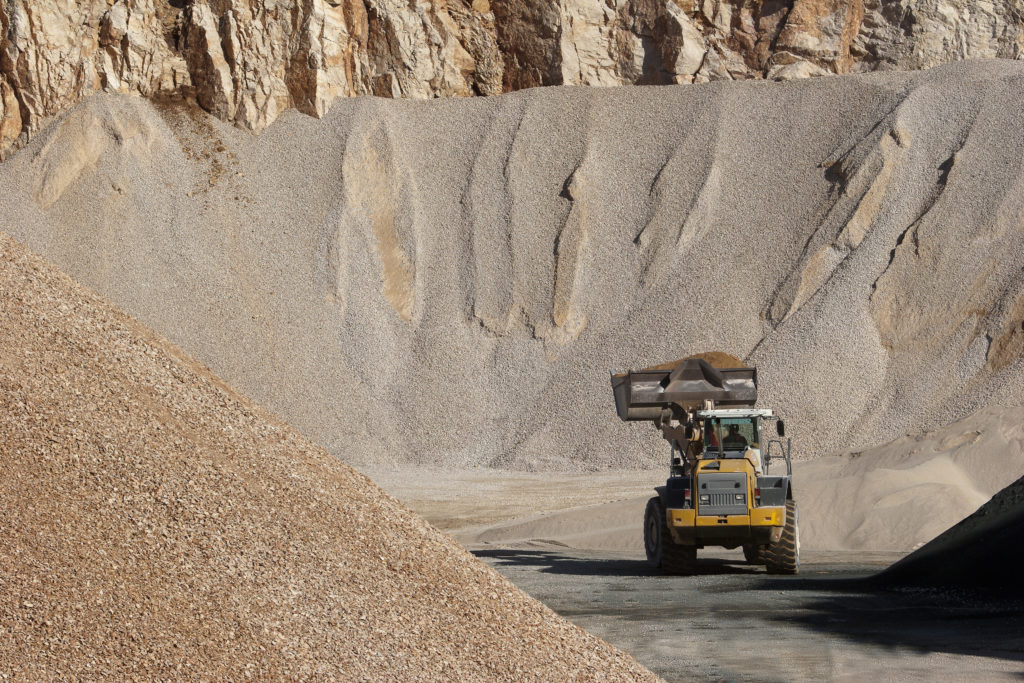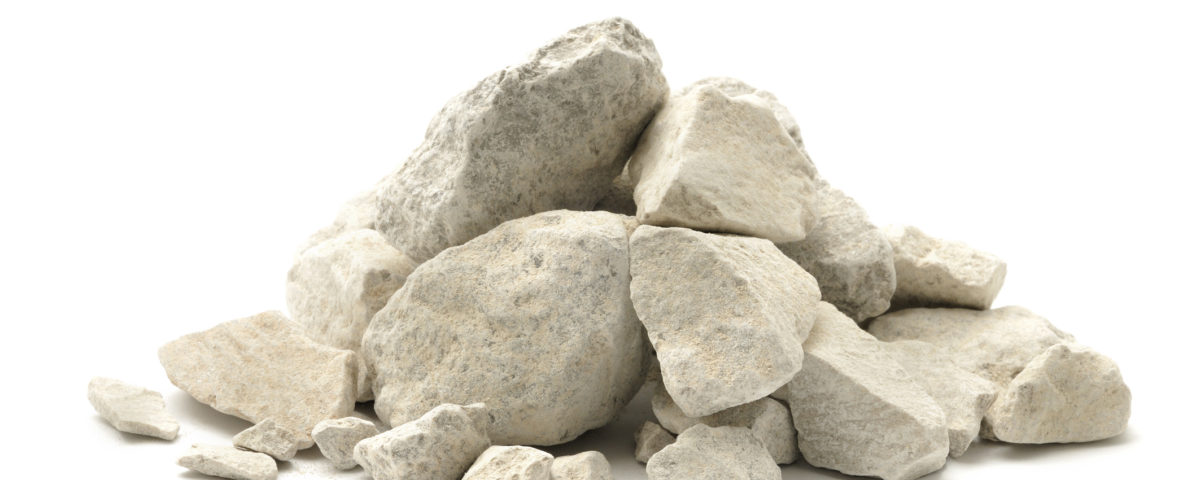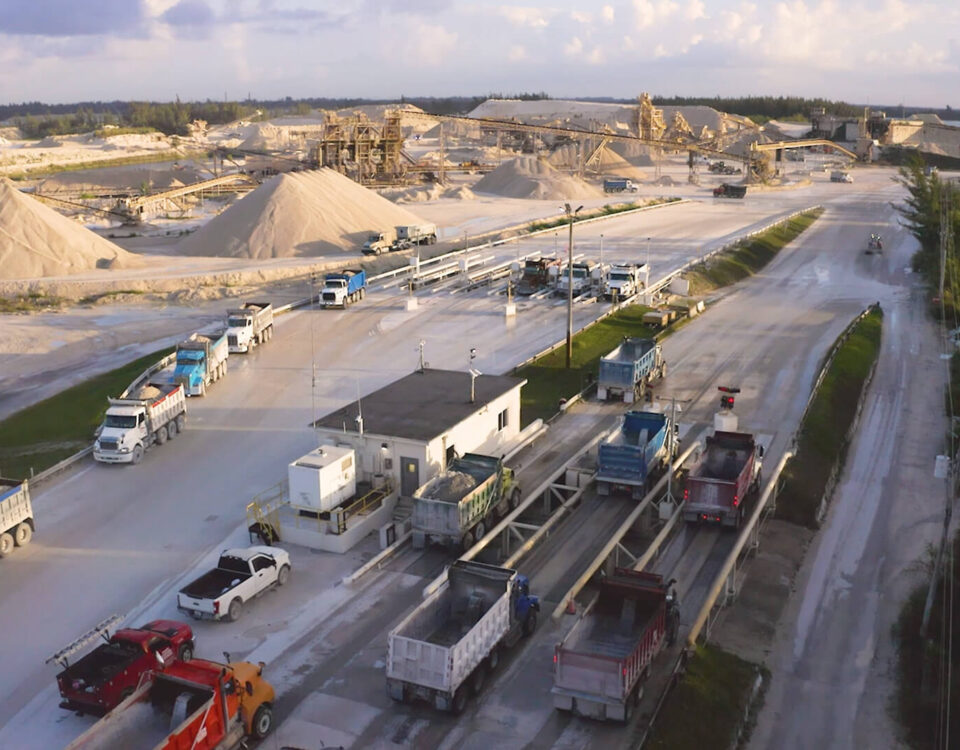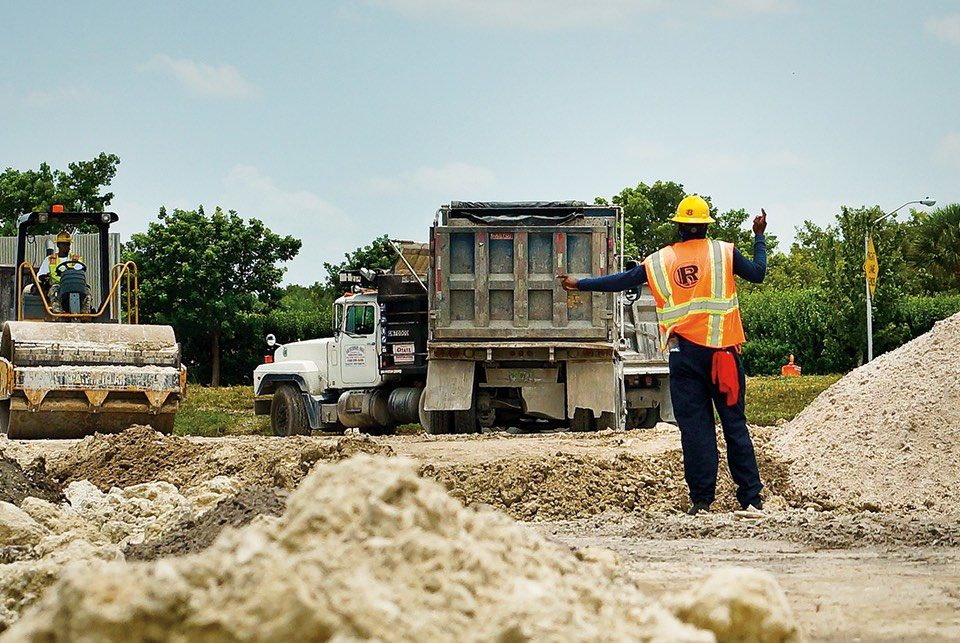
A Day in the Life: What Goes On at a Quarry
February 5, 2018
Florida’s Foundation: A Brief History in the Miracle of Limestone
February 14, 2018Things You Never Knew We Made From Limestone
Limestone is essentially any rock that is primarily composed of calcium carbonate. Limestone is mined and quarried to produce aggregates, which are then used in concrete, asphalt, and numerous other products.
Limestone is a vital, versatile commodity. Though limestone aggregate is essential to our building industry, there are several other limestone uses that might surprise you.
Aggregates are used to construct buildings, roadways, and interstates, but is also present in many everyday items like medicine, makeup, toothpaste, and paint. Calcium is also extracted from limestone and used as food supplements.
Animal Feed Lime
Calcium is an essential element that animals need to grow, develop, and produce. The primary function of calcium for animals is bone and teeth formation. Any calcium deficiency or imbalance could lead to poor growth and bone development, as well as reduced milk output.
Ground limestone serves as a common and economically viable resource for animals. This is due to pure limestone containing some of the highest levels of elemental calcium. Limestone composition is over 50% calcium carbonate.
Farmers use calcium carbonate limestone aggregate in feed for chickens. Chickens with calcium carbonate-rich diets lay harder eggs, allowing easier transportation and a higher likelihood that an egg survives during transport.
Feed lime additionally increases the weight of cattle. Healthy cattle with good weight have better milk production.
Agricultural Lime
As acidity levels increase in the soil, vegetation can suffer. Increased acidity can result from various causes, including acidic rain, acid content in fertilizer and pesticides, crop cycle frequency, etc. The good news is agriculturists don’t need to replace their soil in a field or garden to improve the growing conditions.
The best way to restore adequate pH levels in the soil is by applying agricultural lime. Agricultural lime is limestone that is ground, washed, and screened in the production process for use as a soil treatment.
Agricultural lime’s chemical composition enables vital minerals like calcium and magnesium’s reintroduction into the ground. This restores pH levels and neutralizes high acid content. Additionally, the limestone makes it easier for water to penetrate the highly acidic soil, improving plant abilities for nutrient absorption.
Limestone in Toothpaste
Calcium carbonate is good for strong, healthy teeth. Many toothpaste manufacturers use limestone in their toothpaste. Most toothpaste includes abrasives, binders, foaming agents, detergents, including limestone.
The limestone content in toothpaste functions as a moderate abrasive, filler, and as a thickening agent.
As calcium carbonate serves as a mild-to-moderate abrasive, it is less hard than tooth enamel. For this reason, it works well for cleaning and scrubbing teeth. Additionally, the calcium content benefits teeth, helping those that use the toothpaste to develop and maintain healthy teeth.
Toothpaste companies also use limestone in their toothpaste to give it its white color.
Construction
One would be remiss to discuss the everyday uses of limestone products without discussing the construction industry. This is because limestone is an essential ingredient in virtually anything human-made that we build and use each day.
Limestone aggregate serves as an essential ingredient in cement. Limestone is used to build our roads, homes, hospitals, schools, post offices, interstates, airports, skyscraper, and the list goes on and on.
Without limestone and the local quarrying industry that provides us with affordable limestone, the flourishing improvements we’ve experienced would be nearly impossible. The cost for even the most modest home would be unachievable for anyone outside of the wealthiest individuals.
Limestone: An Essential Ingredient in our Lives
Limestone products and limestone aggregate is a fundamental necessity to our modern lives. Their intrinsic presence in household cleaners, sodas, the farming industry, medicines, as well as our construction industry only further bolsters their value.
These vital ingredients produced from South Florida quarries are indispensable to our daily lives. What seemingly arises out of the ground as sand or gravel is quite literally the building block of our modern society.
The Lake Belt in western Miami-Dade County is one of the largest limestone deposits found anywhere in the United States and produces the highest-quality limestone in the state of Florida.
When you consider and think about what our lives might be like without limestone and the accompanying quarrying industry, it is easy to see the importance of their presence in our area.




